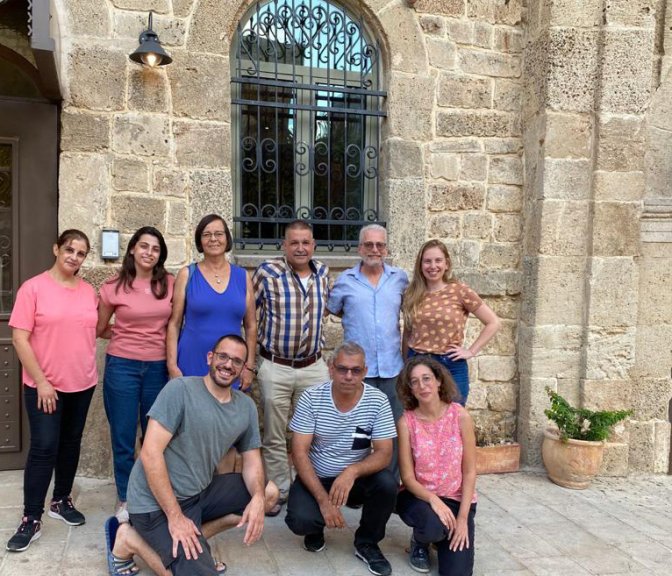Home > Oasis of Peace > Projects & Outreach > The School for Peace > School for Peace Alumni Working for Change in Education
School for Peace Alumni Working for Change in Education
New courses, new partners, new initiatives for promoting peace
Wednesday 13 October 2021, by

The School for Peace is broadening its reach with alumni, participants, partners and academic institutions
Completing a course in the School for Peace is just the beginning for some alumni. The Binational Educators’ Forum, which meets in the School for Peace, is taking a hard look at the separate Jewish and Arab educational systems in Israel and investigating how this split system has contributed to the current conflict in the mixed cities, to prejudices and preconceived notions about the opposite group.
Through examining the problem first through sharing their own personal experiences and insights, and then through academic and professional studies, the group will work together to identify the issues that need to be addressed and the different narratives that must be openly expressed in a binational educational program. From there, they intend to discuss platforms for dialog between groups, develop teaching materials and professional support for teachers, create a working network of teachers committed to a binational educational process, and initiate projects to promote binational education in schools and outside of schools.
The course for Palestinian and Jewish lawyers recently ended
The Forum is an outgrowth of the School for Peace’s Mixed Cities program, and School for Peace director Dr. Roi Silberberg says that this group is the forerunner of what he envisions to be a core of SFP graduates who will take their dedication and group initiatives to the next level, becoming influencers in education and public opinion and creating change within our shared society.
Among the organizations that turned to the School for Peace in the wake of the hostilities in the Arab-Jewish mixed cities was the Israel Association of Community Centers, which includes some 700 community centers around the county. The SFP staff conducted a workshop in August for 50 top staff of the Association, focusing on gaining new perspectives, developing an inclusive approach for working with Palestinian communities and creating an effective multicultural environment.
Community center heads at the School for Peace
New courses will soon be starting, and this year the School for Peace is offering several of those courses in partnership with other organizations. The Change Agents course for Israeli/Palestinian Territorial/Historical Justice, meant for those who engage in offering tours, visits or explanations of these issues, has been developed together with Zochrot, which works to bring the lost Palestinian villages to light.
The Abraham Initiatives, a group working for inter-group dialog and understanding, are partnering with the SFP to offer the Change Leaders in Mixed Cities course. This will be the sixth time the course is offered in the School for Peace.
The Environmental Justice course, which began in June, is continuing through 2022. This year, course members had a tour of Area C in the Palestinian Authority, gaining new perspectives on the environmental and resource connections on both sides of the green line.
Environmental Justice visit to Area C
In addition to the courses offered within the School for Peace, seven courses are being offered through the SFP in academic institutes this year. Two of those will be taught in Tel Aviv University, and one each in the Hebrew University of Jerusalem, Ben-Gurion University of the Negev, Bezalel Art School, Ruppin Academy, and the Interdisciplinary Center in Herzliya.
To prepare for the new educational year, Dr. Roi Silberberg and new and old members of the School for Peace staff met in Akko for a team retreat. Along with tours and fun, the group worked on formulating joint goals and joined in team-building sessions.
School for Peace retreat
View online : School for Peace




